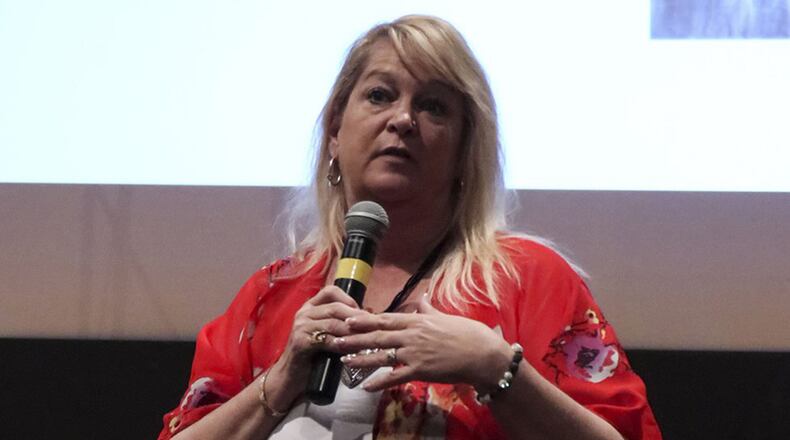A high school classmate offered Flores a ride home, and she accepted. Instead of taking her home, he brought her to his house, where he drugged and sexually assaulted her. For two years following this incident, Flores was sex trafficked around the Detroit area.
Her traffickers would pick her up from her home in the middle of the night, sexually exploit her for profit and return her home before her family awoke.
“Nobody had any idea, that something like that, was happening to a kid like me,” said Flores. “I didn’t have the words to say what was going on.”
Flores’ traffickers threatened to kill her family if she spoke of what was going on, even following her and her brothers home after school. It wasn’t until her family moved again, when she was 17 years old, that she was finally able to escape these horrific events.
Flores is now a survivor and activist determined to raise awareness about human trafficking as well as help survivors like herself. She has written two books, “The Slave Across the Street” and “Slavery in the Land of the Free,” as well as founded the Save Our Adolescents from Prostitution, organization, a hands-on outreach to fight sex trafficking.
The S.O.A.P. project focuses on educating and increasing awareness about human trafficking by partnering with organizations to distribute millions of bars of soap wrapped with a red brand that gives the National Human Trafficking Hotline number and resources to high-risk motels.
April Barrows, sexual assault response coordinator at Wright-Patterson, explained the importance of bringing awareness to the reality of human trafficking to the Wright-Patt community.
“I think a lot of times we can have our blinders up, especially as a military community, and feel like this could never happen here. She put a face to it,” Barrows said.
She explained the long line of attendees that were eager to speak with Flores following the event.
“There was not a person who left that wasn’t impacted by her story,” Barrows said.
Flores encouraged the audience to do their part to increase education about the realities of human trafficking.
For more information on Flores, as well as her fight to end human trafficking, visit www.traffickfree.com and www.soapproject.com.
About the Author
